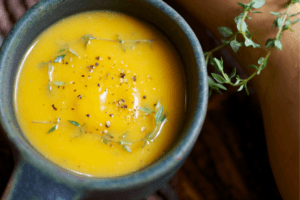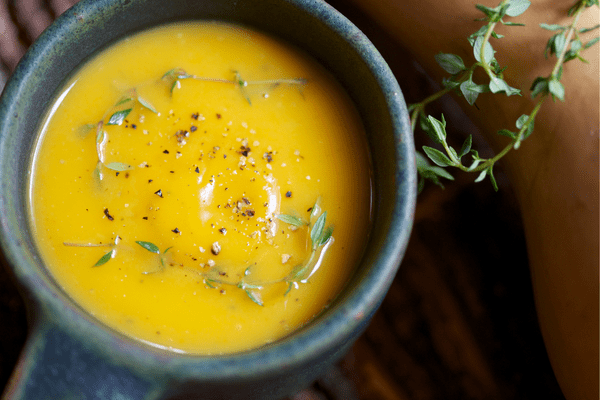Building resilience to manage symptoms of COVID
How Lifestyle and Holistic Approaches can help to optimise immune function
As numbers of COVID 19 infections pick up again and winter viruses, including the flu’ are expected to circulate quite widely the next few months may continue to be challenging for many people.
As well as the opportunities the vaccines offer us to manage the pandemic or flu’, many of you are wondering how you can improve self-care and optimise immune function.
What we see now is that most people contracting COVID-19 experience mild to moderate symptoms. However, for some the illness is more virulent and the guidelines around handwashing, self-isolating and shielding when needed should remain in place.
By drawing on an Integrative Medicine Model, which uses conventional, as well as lifestyle and holistic approaches, you can also take proactive steps to build your personal resilience to support your health and immunity.
What you can do to optimise your immune function
Movement
Physical activity is a crucial element to building your personal resilience, and you should ideally keep moving and exercising even if you are self-isolating.
Nutrition
Enhancing your intake with nutrient dense foods is crucial for a healthy gut which in turn helps to strengthen your immune response. Where possible try and increase the number of rainbow-coloured foods you eat with plenty of salads and add anti-inflammatory foods such as turmeric, ginger, dark chocolate and plenty of herbs and spices along with garlic and olive oil to your meals. Plants in the mint family – including thyme and oregano, lemon balm and mint – have been shown to have antiviral properties and including these in your diet is helpful.
There is some evidence that mushrooms of all sorts give us a top up of Vitamin D and can have immune strengthening effects, so eat plenty of those and make sure to cook the more unusual mushrooms like Shiitake too.
Did you know that bees use thyme to stay healthy?
Supplements
As mentioned above, Vitamin D is thought to be an important vitamin to activate the immune system and fight off the virus. Many of us can be deficient in the winter months and a 2000iu supplement is recommended.
If you do develop symptoms, you can also consider Sambucus Black Elderberry cordial. In studies of coronavirus Sambucus has been shown to reduce attachment and replication of the virus, so get that started as soon as you develop symptoms.
Vitamin C and Zinc are often combined and worth taking particularly as a boost if you become symptomatic alongside the Sambucus.
Food and herb combination Phyto-V has been put through clinical trials and has been shown to help with symptoms of Covid and Long-Covid. Each 530mg capsule includes Citrus Sinensis; Chamomile 100mg (Matricaria Recutita L. Flower); Pomegranate (1000mg), Punica granatum, Curcumin Complex (Curcuma Longa, Rhizome) plus Resveratrol. Phyto-V is available to buy, but as it is a supplement and not a medicine, it cannot be prescribed by a doctor. You can read more information about the Phyto-V study and buy it here.
Homeopathic Medicines
Anas Barb 200c, two tablets twice weekly, can be used during this time, increasing to two tablets once a day if you do have exposure to the virus or have symptoms and have to self-isolate.
Other Homeopathic Medicines recommended to support you with mild symptoms include:
• Arsenicum album 30c – three times daily if anxiety is strong
• Gelsemium 30c – twice daily if weakness and headache predominate
• Bryonia 30c – two-three times a day for dry cough particularly if movement aggravates the cough
• Antimonium tartaricum 30c – if cough becomes more problematic, three times daily
• China officinalis 30c – if fevers are a problem and particularly if they are periodic (coming at certain times of the day), use three times daily and also consider this medicine if fatigue is a problem
• Grindelia 30c – daily if symptoms start with a sore throat
Mindfulness
Where possible try not to worry! Mindfulness approaches can help you to relax with short daily meditations to bring your attention to things other than what you’re anxious about and also help to calm a dysregulated nervous system, which in turn supports your immunity.
It is also worth remembering that as time passes our immunity as a society will be building and our bodies learning to defend itself against this virus.
Learn more…
NCIM hosts Holistic Doctor webinars once a month at which you can hear from our Holistic Doctor, Pharmacist and Therapy team to get wellbeing top tips and discuss the evidence for boosting your resilience.
Check out our website for details of upcoming events. You might like to become a member of our Society for Integrative Healthcare to catch-up on all the previous webinars for example on Gut Health, Fibromyalgia, Sleep, Mental Health, Mindfulness, Menopause and Long Covid, and to access a range of wellbeing resources, the latest research on Integrative Medicine and to benefit from discounts to all of our events www.ncim.org.uk/membership
Seek help…
If your symptoms worsen or if you are concerned, you should contact NHS 111 Helpline or your GP surgery.
Where appropriate, you can also book in for a consultation with our Holistic Doctor and Pharmacist teams who have knowledge in a range of integrative approaches to support symptoms on an individual basis or if symptoms are prolonged, sometimes called Long COVID.
 Dr T’s Roast Butternut Squash and Thyme Soup
Dr T’s Roast Butternut Squash and Thyme Soup
This soup is simple, and ingredients are not exact so that you can find a combination that suits you.
Ingredients
– Coconut, Olive or Sunflower Oil
– One onion
– Four sprigs of fresh thyme
– Cup and a half of Lentils
– Pint and a half of stock
– One medium sized butternut squash cut into pieces
– Three yams (sweet potatoes) cut in half
– Half a pint plant based milk
– Salt and pepper
– plant based cream to swirl in at the end if desired!
Method
On a baking tray, drizzle olive oil over the chopped butternut squash and yam and then sprinkle with fresh thyme and a touch of salt and pepper. Place into the oven and roast for about 30 mins at 180c until soft.
Fry onions in an oil of your choice. Make sure the onion becomes brown and soft, adding a touch of salt as you fry.
Once the butternut squash and yams are cool, take off the skin and remove the seeds and put the flesh into the pan with the onions continue to brown for a few minutes.
Add the lentils and a pint and a half of stock made with a teaspoon of Bouillon or a vegetable stock cube.
Cook until the lentils are fully softened, remembering to add more water as needed as they swell.
As the soup simmers, add more of the fresh thyme, usually as couple of sprigs (the small leaves will disperse in the liquid – and you can remove the stalks at the end).
Once everything is cooked, take off the heat and let it cool for a while.
Add half a pint of plant milk or dairy milk if preferred and blend with a hand blender.
Make sure the consistency is right for you by adding a bit more of the milk if needed.
Add a final pinch of pepper and reheat as needed before serving with a swirl of plant-based cream and a twist of black pepper.


